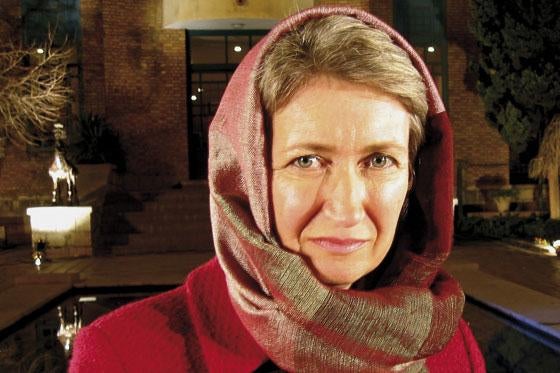
It’s been a tricky week in China for ‘the Western Goebbels Nazi media”. I quote the new website www.anti-cnn.com, established to villify international coverage of the unrest in Tibet.
Apparently founded by a university student, the website has been enthusiastically quoted by the state-controlled China Daily. It also seems to have the approval of the Chinese Foreign Ministry spokesman, Qin Gang, who said on Thursday that if any good were to come out of the ‘unfortunate Tibet incident’it would be ‘to show the Chinese people what some Western media’s so-called fair and objective style is really like”.
As he spoke, 26 journalists chosen by the government were on a conducted tour of Lhasa, the Tibetan capital. The Foreign Ministry says there are 700 foreign journalists in China, so the 674 of us left behind were pretty grumpy, comforting ourselves that it would be – as the Americans say – a dog-and-pony show. Then a miracle happened.
Lhasa has been locked down since 14 March, when several days of largely peaceful demonstrations by monks culminated in a day of violent rioting, in which Tibetan youths set upon Han Chinese and Hui Muslims, killing several and burning their property. The Chinese government wanted to prove that 1) Everything is peaceful now 2) The riots were instigated by ‘the Dalai clique’and 3) Tibetans are loyal to the Communist Party of China.
But as the journalists were ushered into the Jokhang temple, in central Lhasa, 30 young monks burst in weeping and shouting that they had been falsely accused of violence, and imprisoned in the Jokhang. They said they loved the Dalai Lama, and that the people praying at the temple were Communist cadres placed there for show, not real Buddhist worshippers. It was all on camera.
In China, CNN and BBC World run with a few seconds delay so the government can black out anything awkward, but it is somewhat embarrassing to censor your own official press tour. Those with satellite TV therefore saw what happened, but most Chinese get only state TV.
On the news that night they saw a monk from the Jokhang management greeting the reporters, and no mention of the protest. The report went on to explain that the western media are ‘especially biased and prejudiced when it comes to reports on Tibet issues”.
The Chinese, of course, have a point. There is a simplistic ‘Dalai Lama good, Chinese government bad’tendency in some reporting, and journalists make mistakes. A news agency photo of Chinese policemen rescuing someone from the mob was erroneously captioned as an arrest. A German TV station showed footage of police beating Tibetan rioters in Nepal, with voice-over saying it was in Lhasa. (That chief sub editor, video, should write a self-criticism.) Michael Portillo’s opinion piece in the Sunday Times comparing the Beijing Olympics in 2008 with Berlin in 1936 was over the top.
But this is all a distraction from the real issues, namely that these are the most significant protests in China since Tiananmen Square, and journalists are being prevented from covering them.
Not only are we barred from Tibet, we have also been prevented from reporting in the provinces of Gansu, Sichuan and Qinghai where Tibetans have been protesting.
The previous Saturday, the Channel 4 News team, like many others, headed for the Gansu town of Xiahe, arriving just after a demonstration. We managed to get some pictures and interviews – including one with the requisite hapless tourist who was wandering around in a peaceful dream when she suddenly found herself in among riot police and demonstrators. By the next morning, police were preventing any foreigners getting in.
As part of its bid for the 2008 Olympics, the Chinese government pledged to open up to the international media, and in the past year has allowed foreign journalists more freedom.
But, five months before the games start, we’ve hit the wall. These protests crossed a line – the Chinese government will not tolerate such challenges to its authority and the sovereignty of the state. Nor, it seems, will it tolerate reporting which it fears may tarnish the image of ‘harmonious development’it is trying to promote.
It’s been a tricky week. I suspect it’s going to be a tricky five months.
Email pged@pressgazette.co.uk to point out mistakes, provide story tips or send in a letter for publication on our "Letters Page" blog





